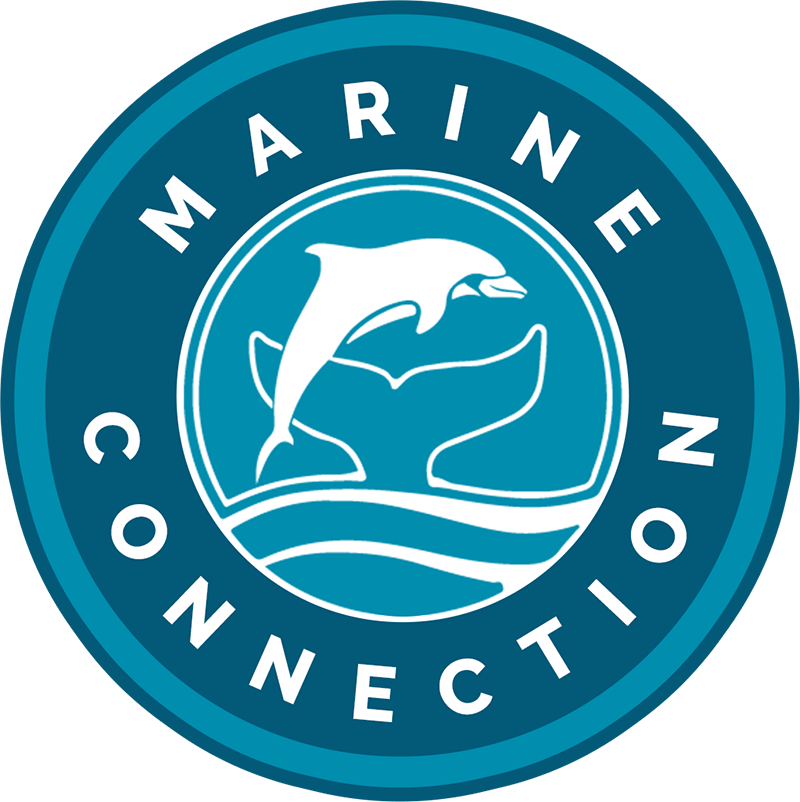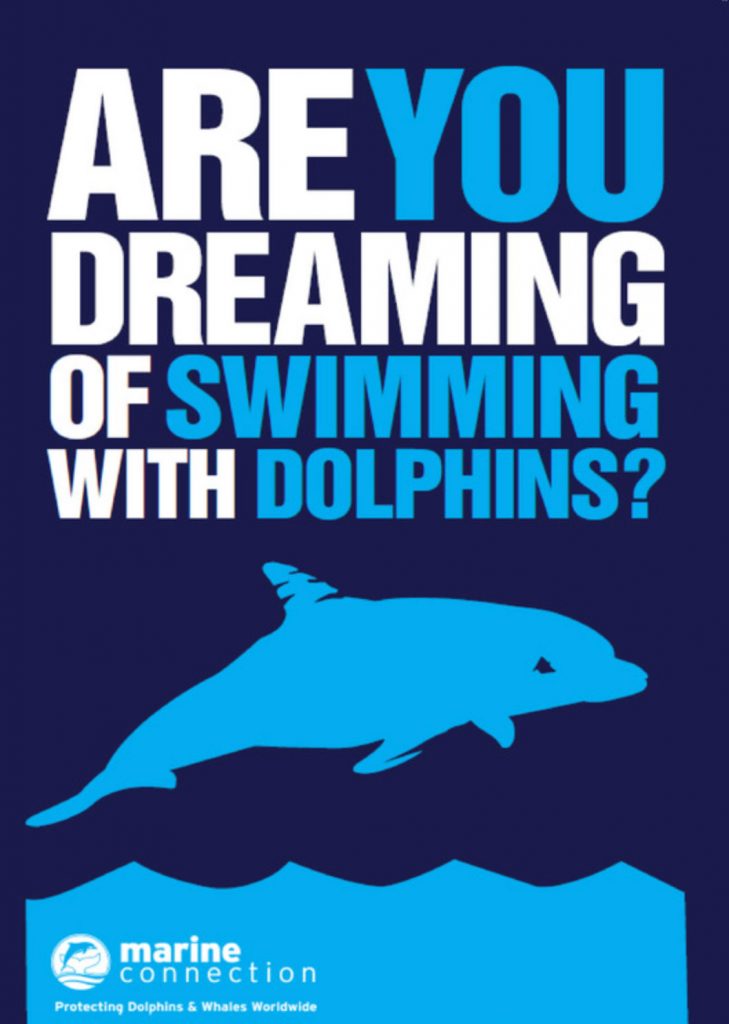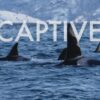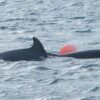Over 3,000 dolphins and whales are currently held in tanks around the world for human entertainment. While captivity may seem harmless to some, the reality is starkly different. In the wild, cetaceans live in complex social groups, travel vast distances daily, and dive deep into the ocean. In captivity, they are confined to barren tanks that are only a tiny fraction of their natural range, with concrete walls replacing the boundless ocean. Stripped of everything natural to them, these intelligent, social beings suffer deeply — both physically and psychologically. The signs of their distress are unmistakable:
- Endless circling in small pools
- Tooth damage from gnawing on tank bars or walls
- Collapsed dorsal fins
- Chronic stress, frustration, and depression
These conditions often lead to disease and premature death.
This is not education. This is not conservation. This is cruelty.
Thousands of people visit marine parks to see dolphins and whales perform – but at what cost to the animals? Caring about cetaceans means doing what’s right for them, not what’s right for us.

We can’t change the past, but we can shape the future.
Marine Connection is committed to ending the global exploitation of dolphins and whales. Together, we can create a world where cetaceans are respected—not displayed. Our work focuses on:
- Banning the capture of wild cetaceans for entertainment
- Ending breeding programs for dolphins and whales in captivity
- Opposing new captive marine facilities
- Stopping ticket sales by tour operators to dolphin/whale shows
- Shutting down live performances involving captive cetaceans
- Investigating facilities to expose poor conditions and push for stronger laws and enforcement
We’ve made significant progress over the years—but until captivity ends, our work continues.
This must be the last generation of dolphins and whales held in confinement. Their intelligence, social bonds, and wild instincts cannot thrive behind glass walls and concrete tanks.
By sharing these powerful, thought-provoking stories from our anti-captivity campaign, you become a voice for the voiceless — helping the world see that their suffering is not entertainment, but injustice.
Together, we can end this. Let this be the last generation to live without the ocean.
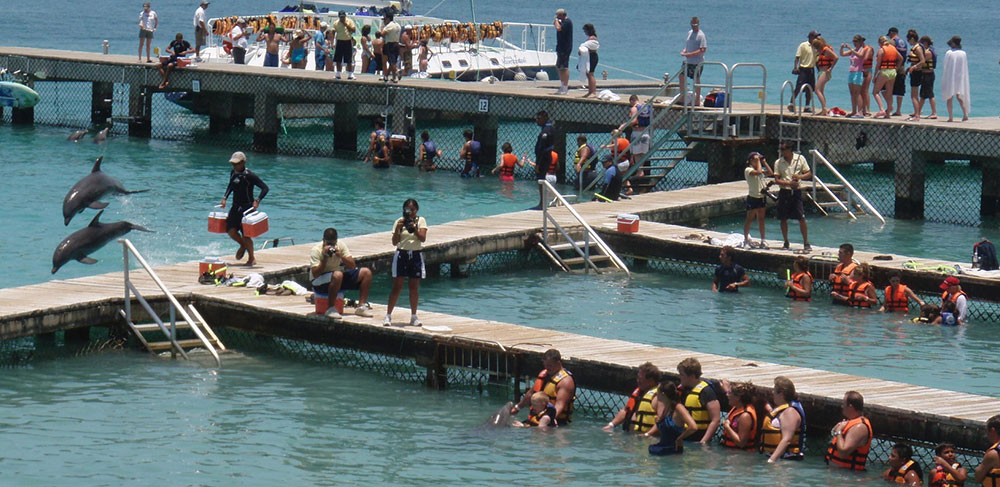
Think Twice Before Swimming with Dolphins
At first glance, “swim with dolphins” (SWD) experiences may seem like harmless fun or even a dream come true. But behind the smiles and photo ops lies a much darker truth—for both the dolphins and the paying participants.
Read More
Dolphins used in SWD programs are forced to interact with strangers day in, day out, 365 days a year. Confined to small enclosures—often sterile concrete tanks—they’re denied the space, freedom, and stimulation they would enjoy in the wild. The relentless demand to “perform” leads many dolphins to suffer from chronic stress, resulting in illness, abnormal behaviour, and premature death.
But the danger isn’t just to them. Tourists are also at risk. Dolphins, though intelligent and social, are wild animals and have been known to bite, butt, or ram participants—causing serious injuries like deep bruising and even broken bones. Zoonotic diseases (those transmissible between humans and animals) are also a real concern in such close-contact environments.
If you truly care about dolphins, please don’t support SWD attractions. There are more ethical and respectful ways to appreciate these magnificent creatures—like observing them in the wild, on their terms.
Love dolphins? Let them live free.

What is the truth behind dolphin-assisted therapy?
Over the years dolphin-assisted therapy (DAT) has become increasingly popular, promoted as a method of treating individuals identified as having mental and/or physical disabilities, but do we have the right to use dolphins and turn them into therapists for the benefit of mankind?
Read More
Dolphin-Assisted Therapy (DAT) has long been promoted as a unique form of treatment for people with various psychological or physical disabilities. It involves sessions where participants interact with dolphins—typically in captivity—with the belief that these interactions can yield therapeutic benefits. However, a closer examination of the evidence and ethical concerns reveals a more troubling picture.
- Lack of Scientific Evidence
Despite its popularity, the scientific community has raised serious concerns about the validity and efficacy of DAT:
- No proven long-term benefits: Research, including the widely cited paper by Dr. Lori Marino and the late Dr. Scott Lilienfeld, has found that the claims of therapeutic benefits lack rigorous scientific support. Many DAT studies have methodological flaws—small sample sizes, lack of control groups, and placebo effects—that undermine their credibility.
- Temporary effects: Some anecdotal reports suggest short-term improvements in mood or behaviour, but these are likely due to the novelty of the experience, the natural enjoyment of being in water, or simply increased attention and interaction during the therapy, not the presence of dolphins themselves.
- Comparable alternatives: Studies have shown that similar therapeutic outcomes can be achieved through other activities, such as swimming, horseback riding (hippotherapy), or play therapy—none of which involve keeping intelligent animals in captivity.
- Animal Welfare and Ethical Concerns
The ethical implications of using dolphins in therapy are significant and cannot be ignored:
- Captivity causes stress: Dolphins are highly intelligent, social marine mammals that typically travel vast distances in the wild. In captivity, they are confined to small tanks or sea pens, which can lead to psychological stress, physical health problems, and abnormal behaviours.
- Forced interaction: In DAT programs, dolphins are trained to perform and interact with humans repeatedly, often without the option to opt out. This kind of forced, repetitive contact can be stressful or even harmful for the animals.
- Commercial exploitation: Many DAT programs are profit-driven and use therapeutic claims as a marketing tool. This commodifies both the vulnerable patients and the dolphins, raising serious ethical red flags.
- The Position of Marine Conservationists
Organisations like Marine Connection have long opposed DAT, citing both the lack of therapeutic credibility and the harm to dolphins. They argue that:
- Promoting DAT legitimises keeping dolphins in captivity, which perpetuates a cycle of capture, breeding, and exploitation.
- There is no justification for using animals in this way, especially when the supposed benefits are unproven and alternatives exist.
- It is ethically problematic to treat another sentient being as a therapeutic tool, especially one that cannot consent and may suffer as a result.
- Conclusion: Should We Use Dolphins as Therapists?
The answer, based on current scientific understanding and ethical considerations, is no:
- Dolphin-Assisted Therapy lacks credible scientific support as a legitimate therapeutic intervention.
- The welfare of the dolphins used in these programs is seriously compromised.
- Alternatives exist that are equally or more effective and do not rely on animal exploitation.
The romanticised image of dolphins as gentle healers of human ailments obscures the reality of their suffering in captivity and the lack of real medical benefit to patients. Rather than turning dolphins into therapists, a more humane and responsible path is to promote therapies that respect the dignity and autonomy of all beings – human and non-human alike.
